Ditapis dengan

Engineering Economy Fifth Edition
- Edisi
- -
- ISBN/ISSN
- 0-13-277491-7
- Deskripsi Fisik
- 589 p
- Judul Seri
- -
- No. Panggil
- TXT SC THU e
- Edisi
- -
- ISBN/ISSN
- 0-13-277491-7
- Deskripsi Fisik
- 589 p
- Judul Seri
- -
- No. Panggil
- TXT SC THU e

The Reengineering Revolution
- Edisi
- -
- ISBN/ISSN
- -
- Deskripsi Fisik
- 336 p
- Judul Seri
- -
- No. Panggil
- TXT IC HAM t
- Edisi
- -
- ISBN/ISSN
- -
- Deskripsi Fisik
- 336 p
- Judul Seri
- -
- No. Panggil
- TXT IC HAM t

Dynamic Waves in Civil Engineering
- Edisi
- -
- ISBN/ISSN
- -
- Deskripsi Fisik
- illus,; 30 cm
- Judul Seri
- -
- No. Panggil
- SC TXT DYN h
- Edisi
- -
- ISBN/ISSN
- -
- Deskripsi Fisik
- illus,; 30 cm
- Judul Seri
- -
- No. Panggil
- SC TXT DYN h

Specialisation Marine Engineering
- Edisi
- -
- ISBN/ISSN
- -
- Deskripsi Fisik
- -
- Judul Seri
- -
- No. Panggil
- CC TXT SPE n
- Edisi
- -
- ISBN/ISSN
- -
- Deskripsi Fisik
- -
- Judul Seri
- -
- No. Panggil
- CC TXT SPE n

Design & Construction of Ports & Marine Structures
- Edisi
- 2
- ISBN/ISSN
- -
- Deskripsi Fisik
- 611 p
- Judul Seri
- -
- No. Panggil
- SC TXT DES d
- Edisi
- 2
- ISBN/ISSN
- -
- Deskripsi Fisik
- 611 p
- Judul Seri
- -
- No. Panggil
- SC TXT DES d

Dredging a Handbook For Engineers
- Edisi
- -
- ISBN/ISSN
- 0-340-54524-0
- Deskripsi Fisik
- 434 p
- Judul Seri
- -
- No. Panggil
- SC TXT DRE r
- Edisi
- -
- ISBN/ISSN
- 0-340-54524-0
- Deskripsi Fisik
- 434 p
- Judul Seri
- -
- No. Panggil
- SC TXT DRE r

Dock and Harbour Engineering vol.2 The Design of Harbours
- Edisi
- 2
- ISBN/ISSN
- 85264-047-2
- Deskripsi Fisik
- 352 p
- Judul Seri
- -
- No. Panggil
- SC TXT DOC h
- Edisi
- 2
- ISBN/ISSN
- 85264-047-2
- Deskripsi Fisik
- 352 p
- Judul Seri
- -
- No. Panggil
- SC TXT DOC h

Dock and Harbour Engineering Vol.1 The Design of Docks
- Edisi
- 2
- ISBN/ISSN
- 85264-037-4
- Deskripsi Fisik
- 338 p
- Judul Seri
- -
- No. Panggil
- SC TXT DOC h
- Edisi
- 2
- ISBN/ISSN
- 85264-037-4
- Deskripsi Fisik
- 338 p
- Judul Seri
- -
- No. Panggil
- SC TXT DOC h

Course Outline & Reader : Shipping and Transport Introduction
- Edisi
- Shipping and Transport Introduction
- ISBN/ISSN
- -
- Deskripsi Fisik
- illus,; 30 cm
- Judul Seri
- Shipping and Transport Introduction
- No. Panggil
- CC STC COU s C1
- Edisi
- Shipping and Transport Introduction
- ISBN/ISSN
- -
- Deskripsi Fisik
- illus,; 30 cm
- Judul Seri
- Shipping and Transport Introduction
- No. Panggil
- CC STC COU s C1

Syllabus : Transport Security
- Edisi
- Transport Security
- ISBN/ISSN
- -
- Deskripsi Fisik
- illus,; 30 cm
- Judul Seri
- -
- No. Panggil
- CC STC SYL t C1
- Edisi
- Transport Security
- ISBN/ISSN
- -
- Deskripsi Fisik
- illus,; 30 cm
- Judul Seri
- -
- No. Panggil
- CC STC SYL t C1

Transport Security
- Edisi
- Transport Security
- ISBN/ISSN
- -
- Deskripsi Fisik
- 64 page
- Judul Seri
- Transport Security
- No. Panggil
- CC STC MOD t C1
- Edisi
- Transport Security
- ISBN/ISSN
- -
- Deskripsi Fisik
- 64 page
- Judul Seri
- Transport Security
- No. Panggil
- CC STC MOD t C1

Presentations : Trasnportation Law
- Edisi
- Trasnportation Law
- ISBN/ISSN
- -
- Deskripsi Fisik
- 37 page
- Judul Seri
- Trasnportation Law
- No. Panggil
- CC STC PRE TRA C1
- Edisi
- Trasnportation Law
- ISBN/ISSN
- -
- Deskripsi Fisik
- 37 page
- Judul Seri
- Trasnportation Law
- No. Panggil
- CC STC PRE TRA C1

The role of Panama Canal in global shipping
Abstract Purpose – The purpose of this study is to find out the future development of the Panama Canal after opening of the new waterway (third set of locks project), in terms of the change of cargo throughput, further deployment of fleets by the shipping companies and competition for the canal.
- Edisi
- Maritime Business Review
- ISBN/ISSN
- -
- Deskripsi Fisik
- 15 halaman
- Judul Seri
- The role of Panama Canal in global shipping
- No. Panggil
- ATC PO MAR a

Nonlinear three-port magnetic-circuit elements for simulating bending magnets
Purpose – The purpose of this paper is to show that constructing magnetic equivalent circuits (MECs) for simulating accelerator magnets is possible by defining a three-port magnetic element for modelling the T-shape field distribution, where the flux leaves the yoke and enters the aperture. Design/methodology/approach – A linear three-port magnetic element is extracted from an analytical fi…
- Edisi
- COMPEL - The international journal for computation
- ISBN/ISSN
- -
- Deskripsi Fisik
- 16 halaman
- Judul Seri
- Nonlinear three-port magnetic-circuit elements for simulating bending magnets
- No. Panggil
- ATC PO HER a

A six sigma framework for marine container terminals", International Journal…
- Edisi
- Vol. 2 Iss 3 pp. 241 - 253
- ISBN/ISSN
- -
- Deskripsi Fisik
- 15 p.
- Judul Seri
- -
- No. Panggil
- ATC LO NOO s
- Edisi
- Vol. 2 Iss 3 pp. 241 - 253
- ISBN/ISSN
- -
- Deskripsi Fisik
- 15 p.
- Judul Seri
- -
- No. Panggil
- ATC LO NOO s
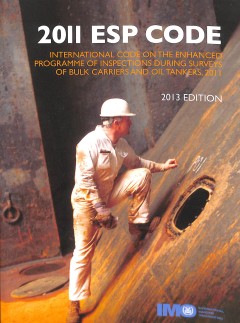
2011 ESP Code : International code on the enhanced programme of inspections d…
- Edisi
- 2013 Ed.
- ISBN/ISSN
- 978-92-801-1552-9
- Deskripsi Fisik
- vii, 294 p., 33 cm
- Judul Seri
- -
- No. Panggil
- REF MR IMO t
- Edisi
- 2013 Ed.
- ISBN/ISSN
- 978-92-801-1552-9
- Deskripsi Fisik
- vii, 294 p., 33 cm
- Judul Seri
- -
- No. Panggil
- REF MR IMO t
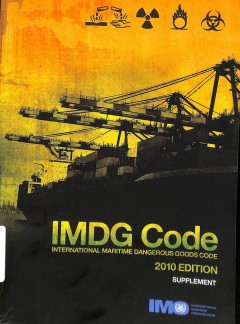
IMDG Code : International maritime dangerous goods code
The International Maritime Dangerous Goods Code lays out the regulatory framework for all aspects of handling dangerous goods and marine pollutants in sea transport, but does not include all details of procedures for packing of dangerous goods or actions to take in the event of an emergency or accident involving personnel associated with the IMDG Code that cover these aspects of the transport o…
- Edisi
- 2010 Editions
- ISBN/ISSN
- 978-92-801-1514-7
- Deskripsi Fisik
- v, 441 hlm., 33 cm
- Judul Seri
- -
- No. Panggil
- REF MR IMO i
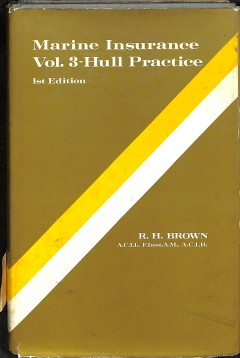
Marine Insurance Vol.3-Hull Practice
This book completes the trilogy by Robert H. Brown, on the principles and practice of marine insurance, which was commenced in 1968. Volume 3 encompasses the whole range of hull insurance as practised in the London insurance market. This book deals with Hull Practice in the London market, with occasional references to overseas business. The Principles of Marine Insurance were covered by Vulume…
- Edisi
- -
- ISBN/ISSN
- 0 900886 13 7
- Deskripsi Fisik
- xii, 425 p., : illus : index : 22 cm
- Judul Seri
- -
- No. Panggil
- TXT PO BRO m C.1
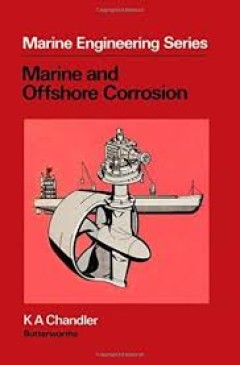
Marine Engineering Series : Marine and Offshore Corrosion
This book describe marine corrosion technology has been preoccupied with the corrosion of ships. Within the last ten years, however the rapid expansion of offshore oil and gas exploitation has changed the course of corrosion research as well as the market for corrosion services and products. So complete has been the change that a new approach, dealing with ship…
- Edisi
- -
- ISBN/ISSN
- 0-408-01175-0
- Deskripsi Fisik
- 413 p., : illus : index : 21 cm
- Judul Seri
- -
- No. Panggil
- TXT PO CHA m C.1
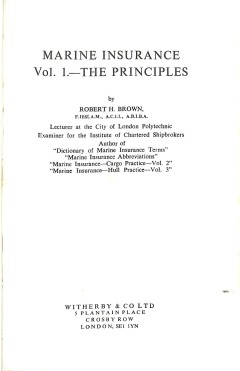
Marine Insurance Vol 1 The Principles
This book, by combining the description of the practice with the principles on which the practice is based, will not only give the reader a sound knowledge of the way the business is conducted, but will give such a grounding that the reader will be encouraged and well equipped to face the many problems of this absorbing subject.
- Edisi
- -
- ISBN/ISSN
- 0 900886 38 2
- Deskripsi Fisik
- xi, 256 p., : illus : index : 22 cm
- Judul Seri
- -
- No. Panggil
- TXT PO BRO m C.1
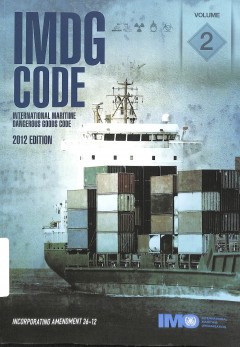
IMDG Code : International maritime dangerous goods code Volume 2
- Edisi
- 2012 Ed. Vol. 2
- ISBN/ISSN
- 978-92-801-1561-1
- Deskripsi Fisik
- v, 369 p., 28 cm
- Judul Seri
- -
- No. Panggil
- REF MR IMO i
- Edisi
- 2012 Ed. Vol. 2
- ISBN/ISSN
- 978-92-801-1561-1
- Deskripsi Fisik
- v, 369 p., 28 cm
- Judul Seri
- -
- No. Panggil
- REF MR IMO i
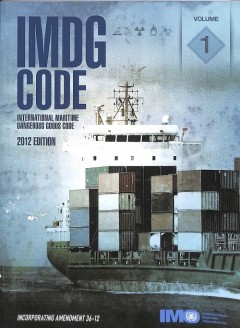
IMDG Code : International maritime dangerous goods code Volume 1
- Edisi
- 2012 Ed. Vol. 1
- ISBN/ISSN
- 978-92-801-15611
- Deskripsi Fisik
- xiv, 481 p., 33 cm
- Judul Seri
- -
- No. Panggil
- REF MR IMO i
- Edisi
- 2012 Ed. Vol. 1
- ISBN/ISSN
- 978-92-801-15611
- Deskripsi Fisik
- xiv, 481 p., 33 cm
- Judul Seri
- -
- No. Panggil
- REF MR IMO i
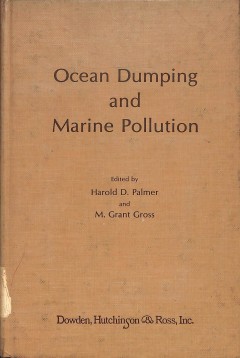
Ocean Dumping and Marine Pollution
This book contents about waste disposal and dredging activities, shelf sediment dynamics and solid-waste disposal, stability of dredged, geological effects of ocean dumping, depositional characteristics of sediments and problem of misplaced sediment.
- Edisi
- -
- ISBN/ISSN
- 0-87933-343-X
- Deskripsi Fisik
- xiii, 268 p., : illuss : index : 21 cm
- Judul Seri
- -
- No. Panggil
- TXT PO PAL o C.1
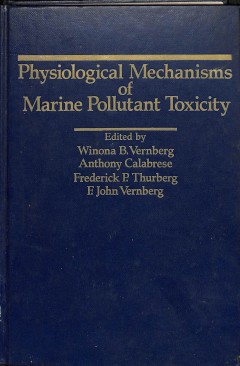
Physiological Mechanisms of Marine Pollutant Toxicity
This book consists of 3 section : Section 1 about Functional Aspects of Detoxification, Section 2 about Physiological Mechanism of Pullutant Toxicity, Section 3 about Environmental Health Implications.
- Edisi
- -
- ISBN/ISSN
- 0-12-718460-0
- Deskripsi Fisik
- xiii, 564 p., : illus : index : 21 cm
- Judul Seri
- -
- No. Panggil
- TXT PO VER p C.1
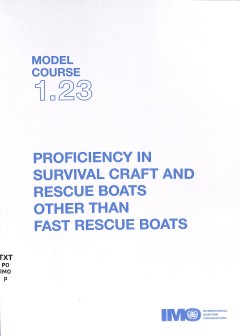
Proficiency in survival craft and rescue boats other than fast rescue boats
The purpose of the IMO model courses is to assist maritime training institutes and their teaching staff in organzing and introducing new training courses, or in enching, updating or supplementing existing training material where the quality and effectiveness of the training course may thereby be improved
- Edisi
- 2000 Ed.
- ISBN/ISSN
- 978-92-801-6115-1
- Deskripsi Fisik
- v, 68 p., 33 cm
- Judul Seri
- -
- No. Panggil
- TXT PO IMO p
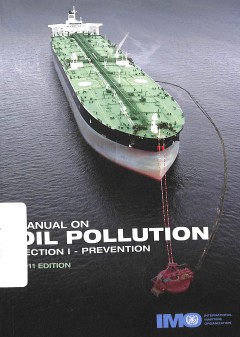
Manual on oil pollution : section I - prevention
- Edisi
- 2011 Edition
- ISBN/ISSN
- 978-92-801-4244-0
- Deskripsi Fisik
- vi, 138 hlm., 21 cm
- Judul Seri
- -
- No. Panggil
- TXT MR MAN m
- Edisi
- 2011 Edition
- ISBN/ISSN
- 978-92-801-4244-0
- Deskripsi Fisik
- vi, 138 hlm., 21 cm
- Judul Seri
- -
- No. Panggil
- TXT MR MAN m
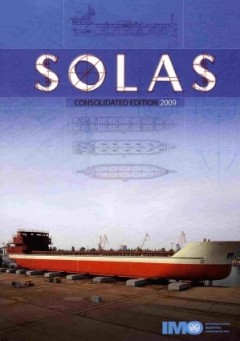
Solas : consolidated edition 2009
Of all the international conventions dealing with maritime safety, the most important is the International Convention for the Safety of Life at Sea, better known as SOLAS, which covers a wide range of measures designed to improve the safety of shipping. The Convention is also one of the oldest of its kind: the first version was adopted in 1914 following the sinking of the Titanic with the loss …
- Edisi
- Fifth Edition
- ISBN/ISSN
- 978-92-801-1505-5
- Deskripsi Fisik
- viii, 418 hlm., 33 cm
- Judul Seri
- -
- No. Panggil
- TXT MR IMO s
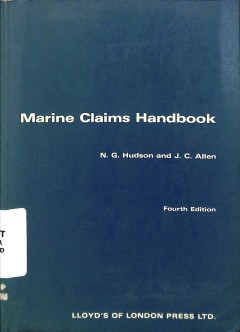
Marine claims handbook
This is a guide to the principles of marine insurance claims. Fully revised, the text now includes: the York-Antwerp Rules 1994; the final revision of the Institute Time Clauses; and developments in pollution liability, including OPA 90. Once a claim has arisen, it is in the interests of all parties that matters proceed as smoothly as possible. By explaining what should be happening, what you s…
- Edisi
- Fourth Ed.
- ISBN/ISSN
- 0-907432-91-3
- Deskripsi Fisik
- vi, 102 p., 24 cm
- Judul Seri
- -
- No. Panggil
- TXT MR HUD m
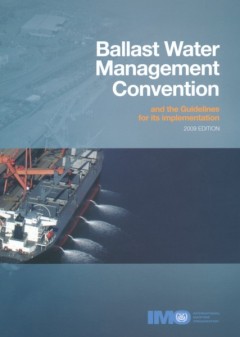
Ballast water management convention and the guidlines for its implementation
This edition reproduces : the text of the international Convention for the Control and Management of Ships 'Ballast Water and Sediments, 2004' 1. The text of the International Convention for the Control and Management of Ships's Ballast Water and Sedimens, on 2004; 2. Four Conference resolutions adopted at the International Conference on Ballast Water Management for Ships held at IMO's Headqu…
- Edisi
- -
- ISBN/ISSN
- 978-92-801-1503-1
- Deskripsi Fisik
- xi, 234 p., 21 cm
- Judul Seri
- -
- No. Panggil
- TXT MR IMO b

International convention on civil liability for buker oil pollution damage, 2001
The purpose of the convention is to ensure the payment of adequate, prompt and effective compensation to victims of pollution caused by the escape or discharge of bunker oil from ships
- Edisi
- 2001 Ed.
- ISBN/ISSN
- 92-801-0032-7
- Deskripsi Fisik
- ix, 70 p., 21 cm
- Judul Seri
- -
- No. Panggil
- TXT MR IMO i
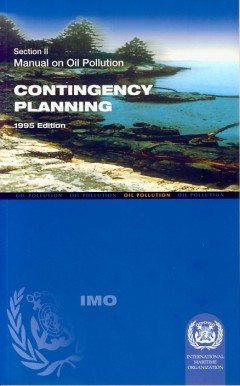
Section II manual on oil pollution : contingency planning
This publication, prepared by the Marine Environment Protection Committee of the International Maritime Organization (IMO). Supersedes the 1988 edition of section II of the Manual on Oil Pollution.
- Edisi
- 1995 Ed.
- ISBN/ISSN
- 978-92801-1330-3
- Deskripsi Fisik
- vii, 74 p., 21 cm
- Judul Seri
- -
- No. Panggil
- TXT MR IMO s
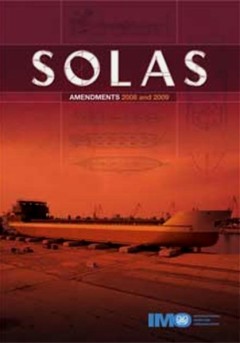
Solas : Amendments 2008 and 2009
- Edisi
- -
- ISBN/ISSN
- 978-92-801-1520-8
- Deskripsi Fisik
- viii, 78 p., 21 cm
- Judul Seri
- -
- No. Panggil
- TXT MR IMO s
- Edisi
- -
- ISBN/ISSN
- 978-92-801-1520-8
- Deskripsi Fisik
- viii, 78 p., 21 cm
- Judul Seri
- -
- No. Panggil
- TXT MR IMO s

General operator's certificate for the global maritime distress and safety sy…
- Edisi
- 2004 Ed.
- ISBN/ISSN
- 978-92-801-4181-8
- Deskripsi Fisik
- v. 368 p., 33 cm
- Judul Seri
- Model Course 1.25
- No. Panggil
- MR IMO g
- Edisi
- 2004 Ed.
- ISBN/ISSN
- 978-92-801-4181-8
- Deskripsi Fisik
- v. 368 p., 33 cm
- Judul Seri
- Model Course 1.25
- No. Panggil
- MR IMO g
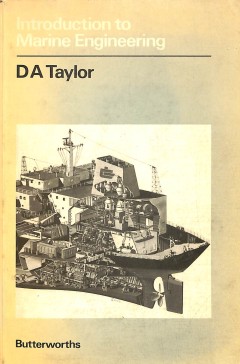
Introduction to marine engineering
Content this book about ship and machinery, Diesel engines, steam turbines and gearing, boilers, feel system, pums and pumping systems, auxilaries, fuel oil, lubricating oils and their treatment, refrigaation, air conditioning and ventilation, deck machinery and hull equipment, shafting and propellers, steering and propellers, steering gear, fire fighting and safety, electrical equipment, ins…
- Edisi
- -
- ISBN/ISSN
- 0-408-00586-6
- Deskripsi Fisik
- 360 p : 23 cm
- Judul Seri
- -
- No. Panggil
- TXT MR TAY i C.1
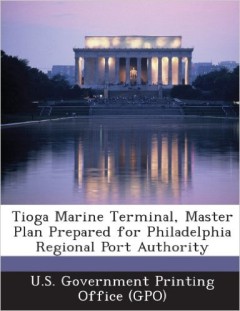
Tioga marine terminal, master plan prepared for Philadelphia regional port au…
The United States Government Printing Office (GPO) was created in June 1860, and is an agency of the the U.S. federal government based in Washington D.C. The office prints documents produced by and for the federal government, including Congress, the Supreme Court, the Executive Office of the President and other executive departments, and independent agencies. The Coastal Zone Information Cente…
- Edisi
- -
- ISBN/ISSN
- 978-128-907-196-7
- Deskripsi Fisik
- 31 p., ; 24 cm ; illus : pictures
- Judul Seri
- -
- No. Panggil
- TXT MR UNI t
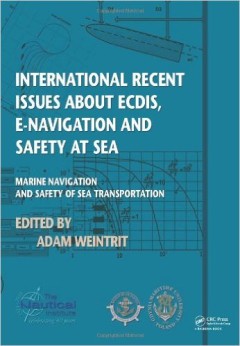
International recent issues about ecdis, e-navigation and safety at sea : mar…
The TransNav 2011 Symposium held at the Gdynia Maritime University, Poland in June 2011 has brought together a wide range of participants from all over the world. The program has offered a variety of contributions, allowing to look at many aspects of the navigational safety from various different points of view. Topics presented and discussed at the Symposium were: navigation, safety at …
- Edisi
- -
- ISBN/ISSN
- 978-0-415-69112-3
- Deskripsi Fisik
- 199 p, 21 cm
- Judul Seri
- -
- No. Panggil
- TXT MR WEI i
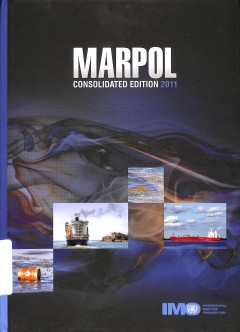
Marpol : consolidated edition 2011 - Articles, protocols, annexes and unified…
The International Convention for the Prevention of Pollution from Ships, 1973 (MARPOL Convention), is concerned with preserving the marine environment through the prevention of pollution by oil and other harmful substances and the minimization of accidental discharge of such substances. Its technical content is laid out in six Annexes, the first five of which were adopted by the 1973 Convention…
- Edisi
- Consolidated Ed. 2011
- ISBN/ISSN
- 978-92-801-1532-1
- Deskripsi Fisik
- ix, 447 p., 33 cm
- Judul Seri
- -
- No. Panggil
- TXT MR IMO m

Optimum throughput and performance evaluation of marine terminals
The performance of marine terminals has generally been evaluated by comparing their actual throughputs with their optimum throughputs. The engineering approach that generally has been used to determine optimum throughputs may be appropriate when terminals have natural hinterlands. In a deregulated (competitive) environment in which the natural hinterlands of marine terminals have become diffuse…
- Edisi
- VOL. 15, NO. 4, 327-331
- ISBN/ISSN
- -
- Deskripsi Fisik
- 6 p.
- Judul Seri
- Maritime Policy & Management: The flagship journal of international shipping and port research
- No. Panggil
- ATC LO TAL o

Proposed Minimum Luminous Range for Existing Lighthouses in This Age of Globa…
Long-range visual marine aids to navigation are not required for current marine navigational practices. Therefore, the objective of this study was to develop a minimum luminous range for major lighthouses that are still in existence to sustain the operation of the lighthouses in the future. Two steps were involved in the determination of the minimum luminous range, namely the modification of th…
- Edisi
- -
- ISBN/ISSN
- -
- Deskripsi Fisik
- 8 p.
- Judul Seri
- ScienceDirect
- No. Panggil
- ATC PO UAD p

Build-up of toxic metals on the impervious surfaces of a commercial seaport
In thecontextofincreasingthreatstothesensitivemarineecosystembytoxicmetals,thisstudyin- vestigatedthemetalbuild-uponimpervioussurfacesspecific tocommercialseaports.Theknowledge generatedfromthisstudywillcontributetomanagingtoxicmetalpollutionofthemarineecosystem. The studyfoundthatinter-modaloperationsandmainaccessroadwayhadthehighestloadsfollowedby container storageandvehiclemarshallingsites…
- Edisi
- -
- ISBN/ISSN
- 0147-6513
- Deskripsi Fisik
- 6 p.
- Judul Seri
- Ecotoxicology and Environmenta lSafety
- No. Panggil
- ATC PO ATH b
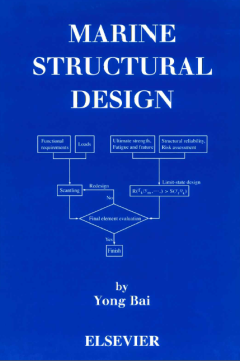
Marine structural design
- Edisi
- -
- ISBN/ISSN
- 0-08-043921-7
- Deskripsi Fisik
- -
- Judul Seri
- -
- No. Panggil
- TXT MR BAI m
- Edisi
- -
- ISBN/ISSN
- 0-08-043921-7
- Deskripsi Fisik
- -
- Judul Seri
- -
- No. Panggil
- TXT MR BAI m
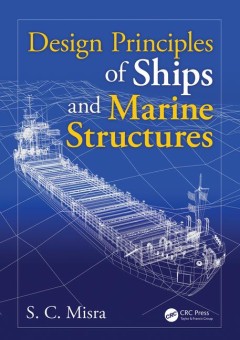
Design principles of ships and marine structures
- Edisi
- -
- ISBN/ISSN
- 13-978-4822-5447-1
- Deskripsi Fisik
- xxiii, 450 p.
- Judul Seri
- -
- No. Panggil
- TXT LO MIS d
- Edisi
- -
- ISBN/ISSN
- 13-978-4822-5447-1
- Deskripsi Fisik
- xxiii, 450 p.
- Judul Seri
- -
- No. Panggil
- TXT LO MIS d
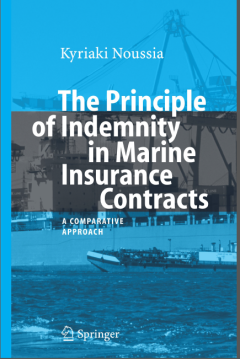
The principle of indemnity in marine insurance contracts: a coparative approach
- Edisi
- -
- ISBN/ISSN
- 978-3-540-49073-9
- Deskripsi Fisik
- -
- Judul Seri
- -
- No. Panggil
- TXT MR Nou t
- Edisi
- -
- ISBN/ISSN
- 978-3-540-49073-9
- Deskripsi Fisik
- -
- Judul Seri
- -
- No. Panggil
- TXT MR Nou t
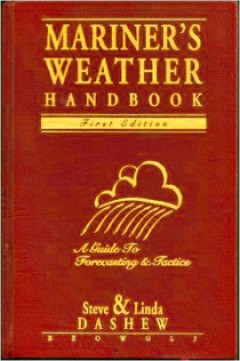
Mariner's weather handbook: a guide to forecasting & tactics
- Edisi
- pertama
- ISBN/ISSN
- -
- Deskripsi Fisik
- -
- Judul Seri
- -
- No. Panggil
- TXT MR Ste m
- Edisi
- pertama
- ISBN/ISSN
- -
- Deskripsi Fisik
- -
- Judul Seri
- -
- No. Panggil
- TXT MR Ste m
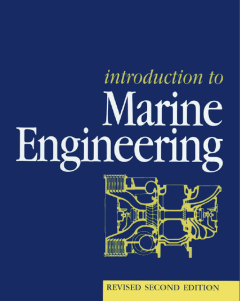
Introduction to marine engineering
- Edisi
- Revisi kedua
- ISBN/ISSN
- 0-7506-2530-9
- Deskripsi Fisik
- -
- Judul Seri
- -
- No. Panggil
- TXT MR Tay i
- Edisi
- Revisi kedua
- ISBN/ISSN
- 0-7506-2530-9
- Deskripsi Fisik
- -
- Judul Seri
- -
- No. Panggil
- TXT MR Tay i
Dynamic shipping and port development in the globalized economy volume 1 : ap…
- Edisi
- -
- ISBN/ISSN
- 978-1-137-51429-5
- Deskripsi Fisik
- xv, 229 p.
- Judul Seri
- -
- No. Panggil
- TXT PO LEE d
- Edisi
- -
- ISBN/ISSN
- 978-1-137-51429-5
- Deskripsi Fisik
- xv, 229 p.
- Judul Seri
- -
- No. Panggil
- TXT PO LEE d

Advanced methods for container stacking
In this paper, we study stacking policies for containers at an automated container terminal. It is motivated by the increasing pressure on terminal performance put forward by the increase in the size of container ships. We consider several variants of category stacking, where containers can be exchanged during the loading process. The categories facilitate both stacking and online optimization …
- Edisi
- -
- ISBN/ISSN
- -
- Deskripsi Fisik
- 25 p.
- Judul Seri
- -
- No. Panggil
- ATC LO DEK a

Marine engines emission and dispersion in fuel switching operation : A case s…
This study analyses the production and the dispersion of air pollutants produced by ship engines of great displacement during the approaching phase to the seaports. In agreement with the present environmental rules, several scenarios were examined, considering the possibility of fuel switch, from heavy fuel oil to marine gasoil. After characterizing the emissions during this fuel change-over, a…
- Edisi
- -
- ISBN/ISSN
- -
- Deskripsi Fisik
- 8 p.
- Judul Seri
- -
- No. Panggil
- ATC PO LAN m
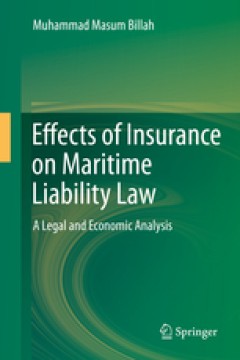
Effects of Insurance on Maritime Liability Law: A Legal and Economic Analysis
The book examines how the absence of insurance in the past led to some unique maritime liability law principles such as ‘general average’ (i.e., losses or expenses shared by all the parties to a maritime adventure) and the limitation of ship owners’ liability. In the absence of insurance, these principles served the function of insurance mostly for ship owners. As commercial marine insura…
- Edisi
- -
- ISBN/ISSN
- 978-3-319-03488-1
- Deskripsi Fisik
- xv, 207 p
- Judul Seri
- -
- No. Panggil
- TXT MR BIL e
safety and shipping review 2013
In 2012, two high profile maritime incidents pushed shipping safety into the public eye once more with the loss of the Costa Concordia off Italy in January followed in February by that of the Rabaul Queen ferry, off Papua New Guinea. Both events caused a tragic loss of life. However, while these incidents have dominated public ship safety discussions, statistics reveal that reported total losse…
- Edisi
- -
- ISBN/ISSN
- -
- Deskripsi Fisik
- 13 pages
- Judul Seri
- An annual review of trends and developments in shipping losses and safety – January 2013
- No. Panggil
- TXT LO ALI s
 Karya Umum
Karya Umum  Filsafat
Filsafat  Agama
Agama  Ilmu-ilmu Sosial
Ilmu-ilmu Sosial  Bahasa
Bahasa  Ilmu-ilmu Murni
Ilmu-ilmu Murni  Ilmu-ilmu Terapan
Ilmu-ilmu Terapan  Kesenian, Hiburan, dan Olahraga
Kesenian, Hiburan, dan Olahraga  Kesusastraan
Kesusastraan  Geografi dan Sejarah
Geografi dan Sejarah